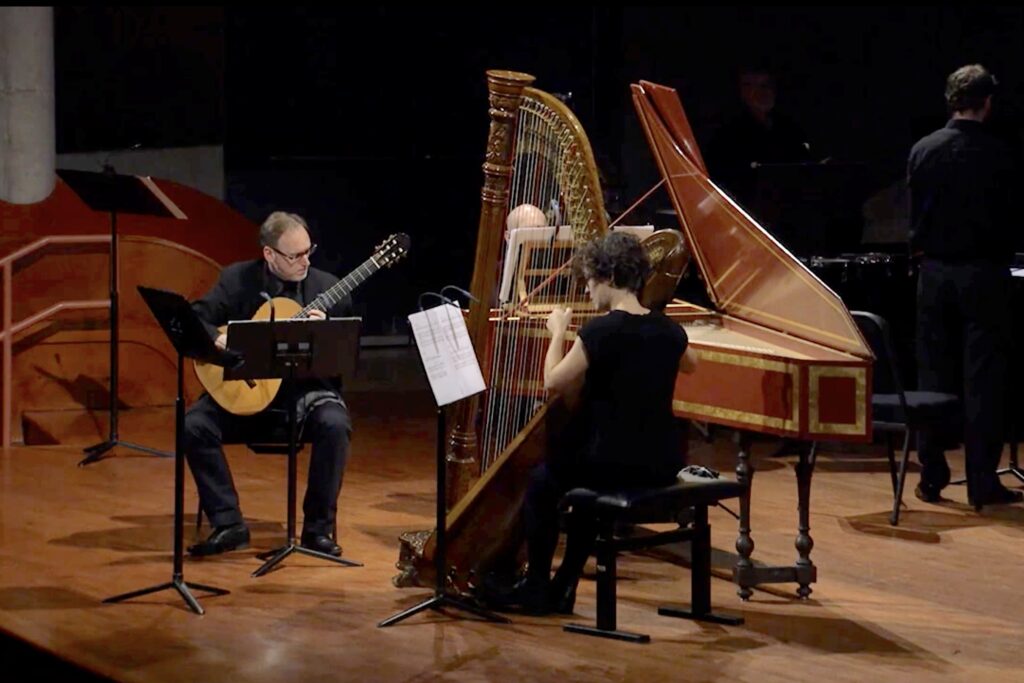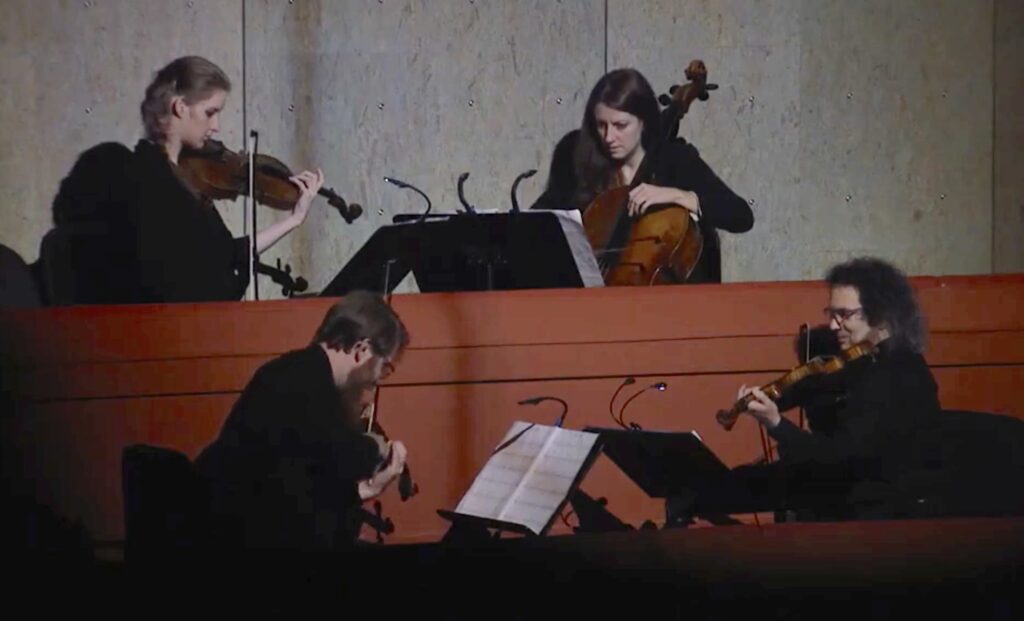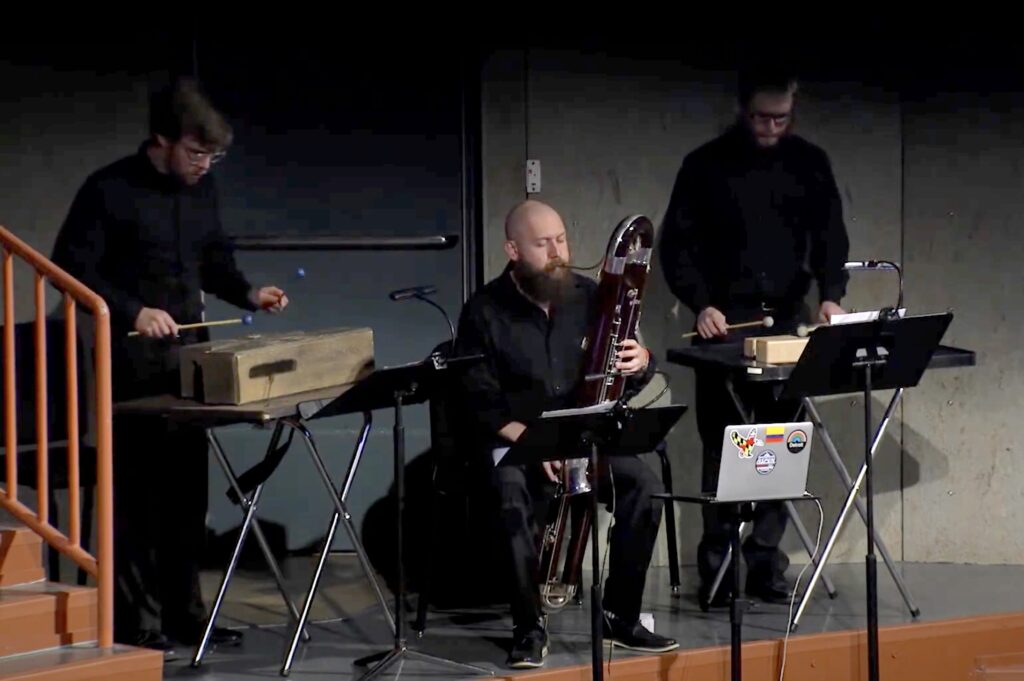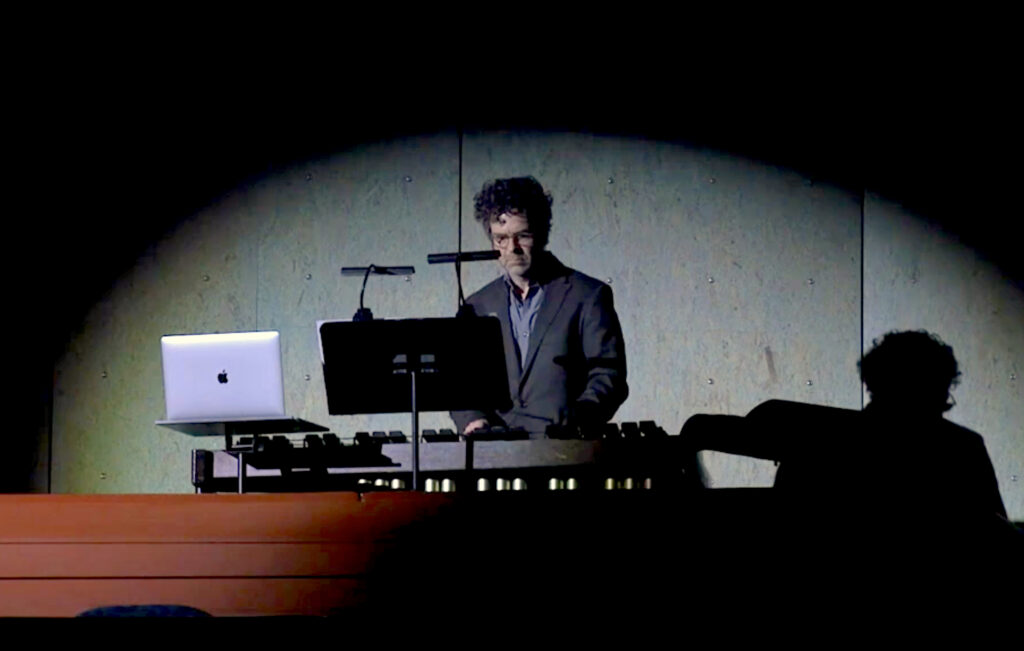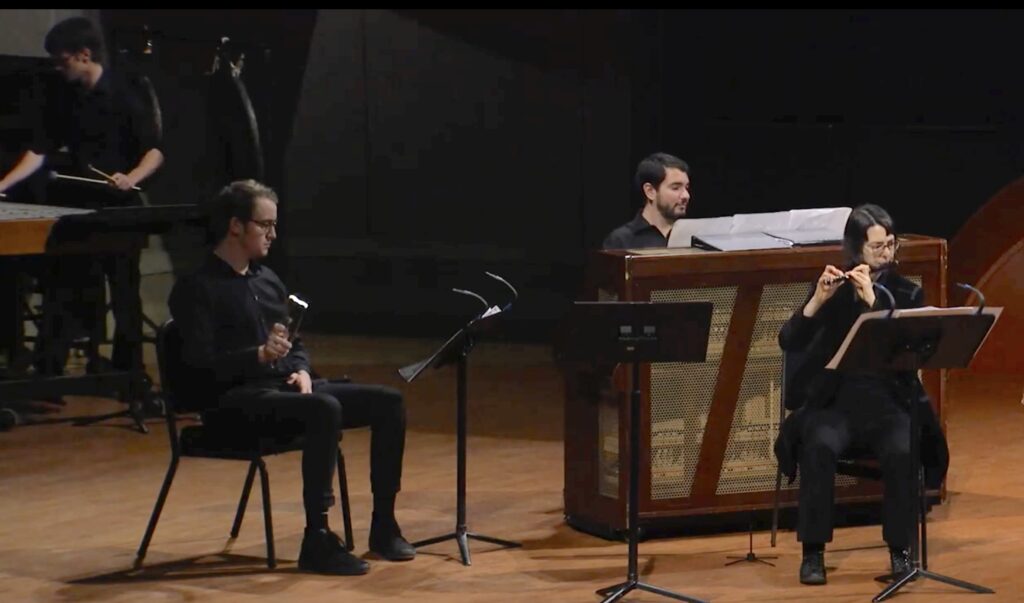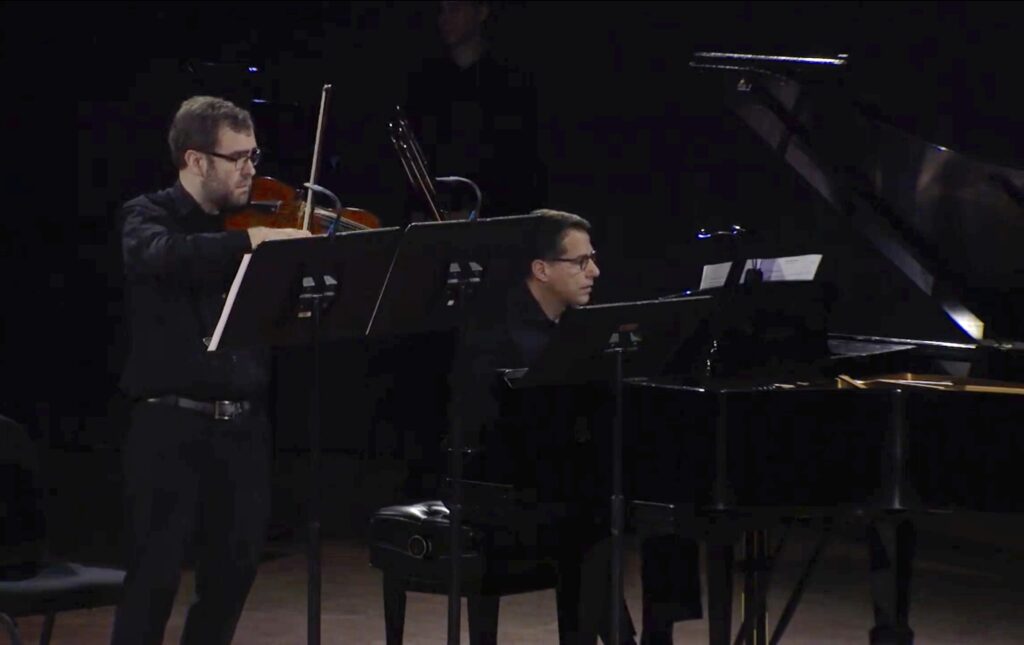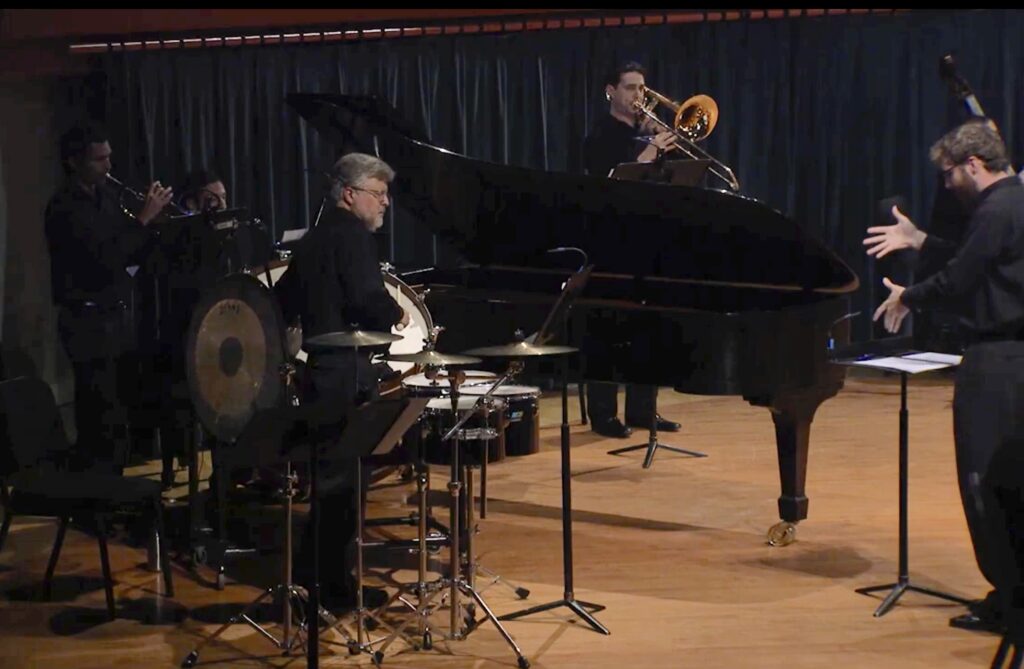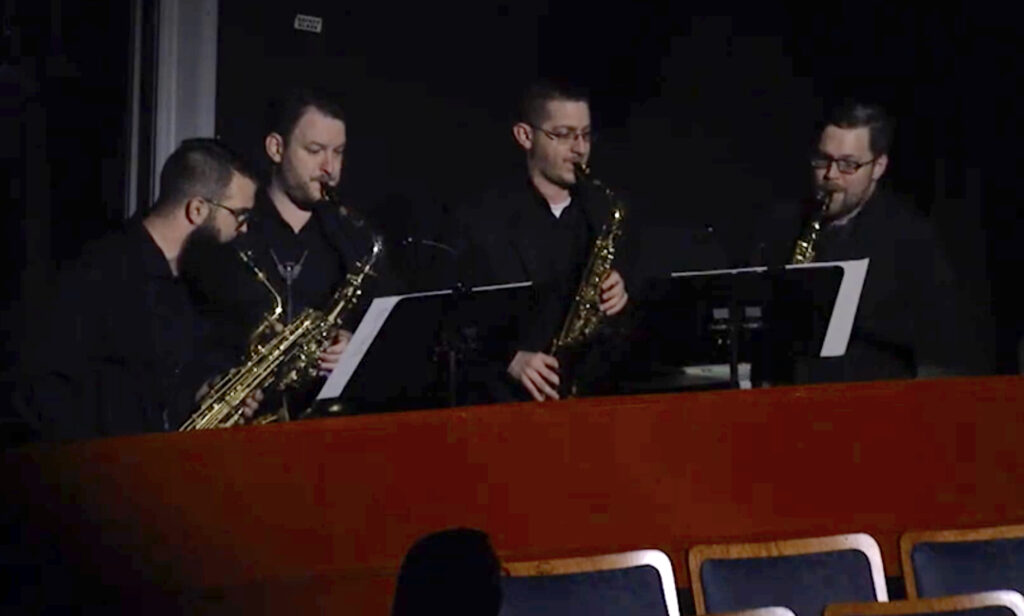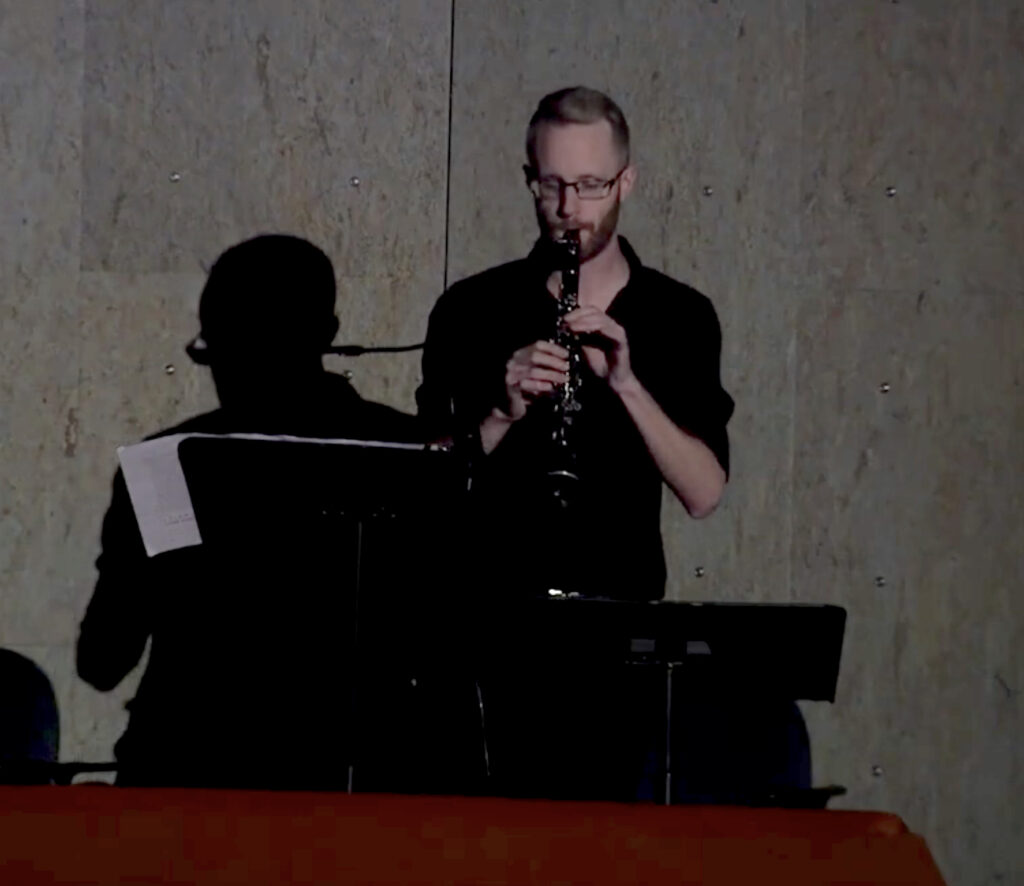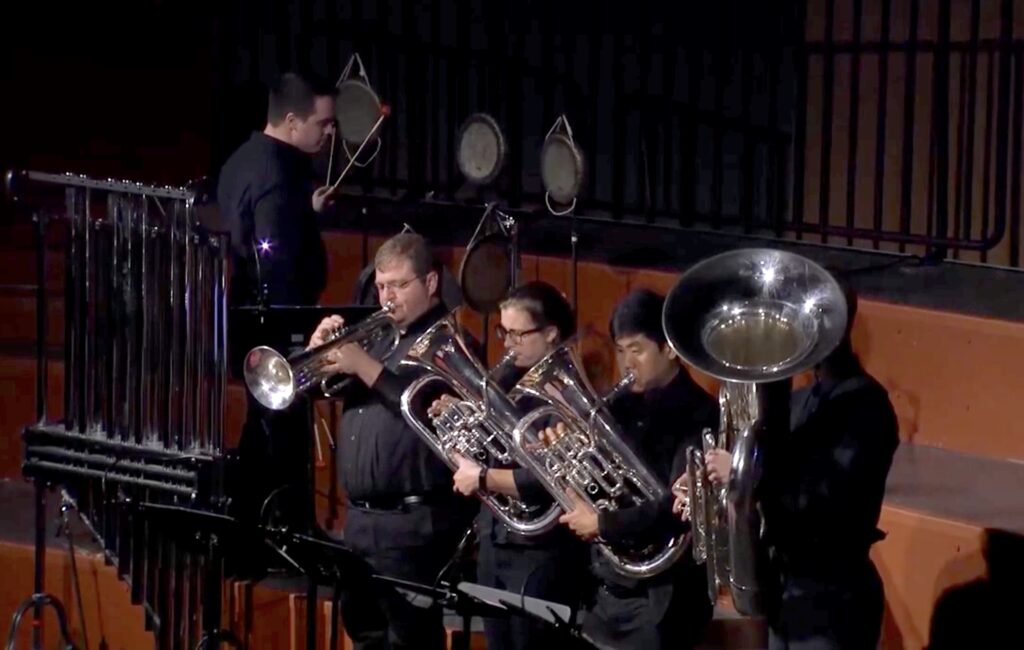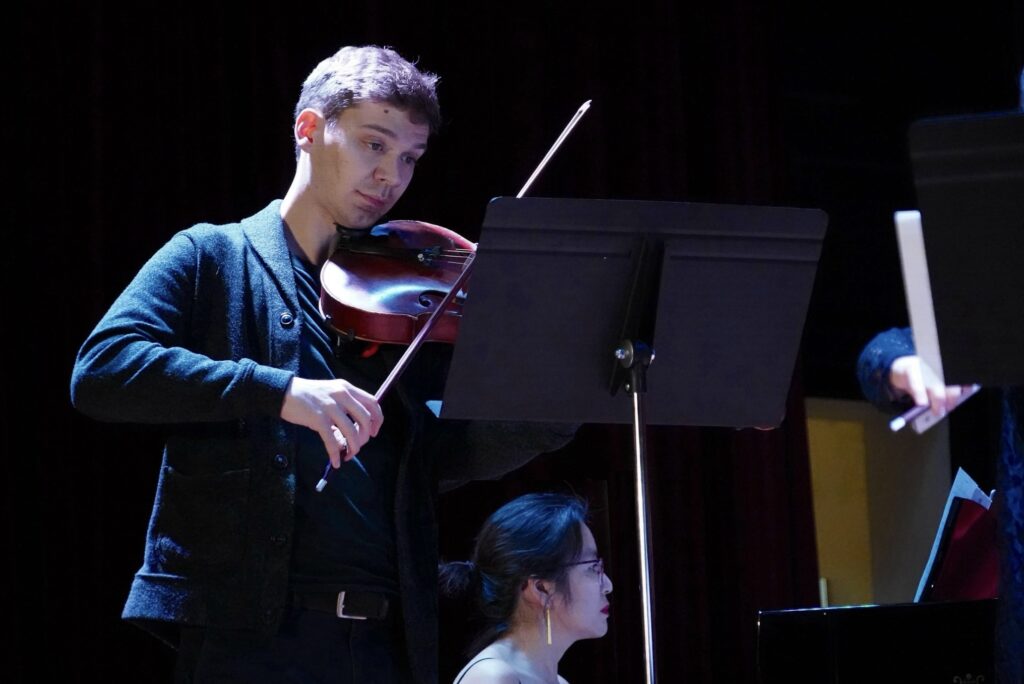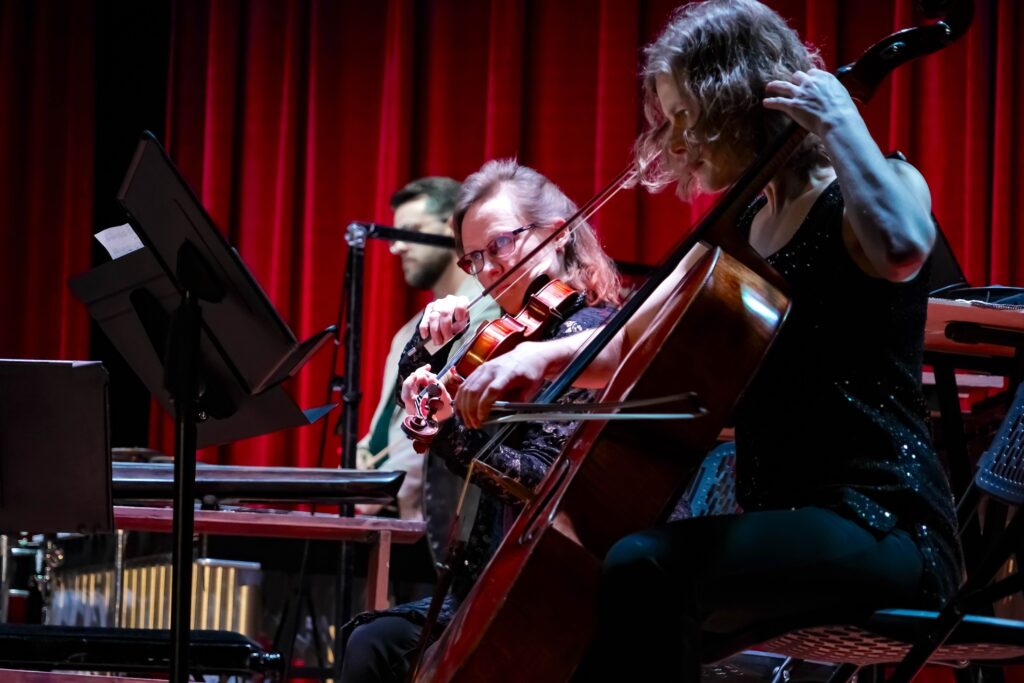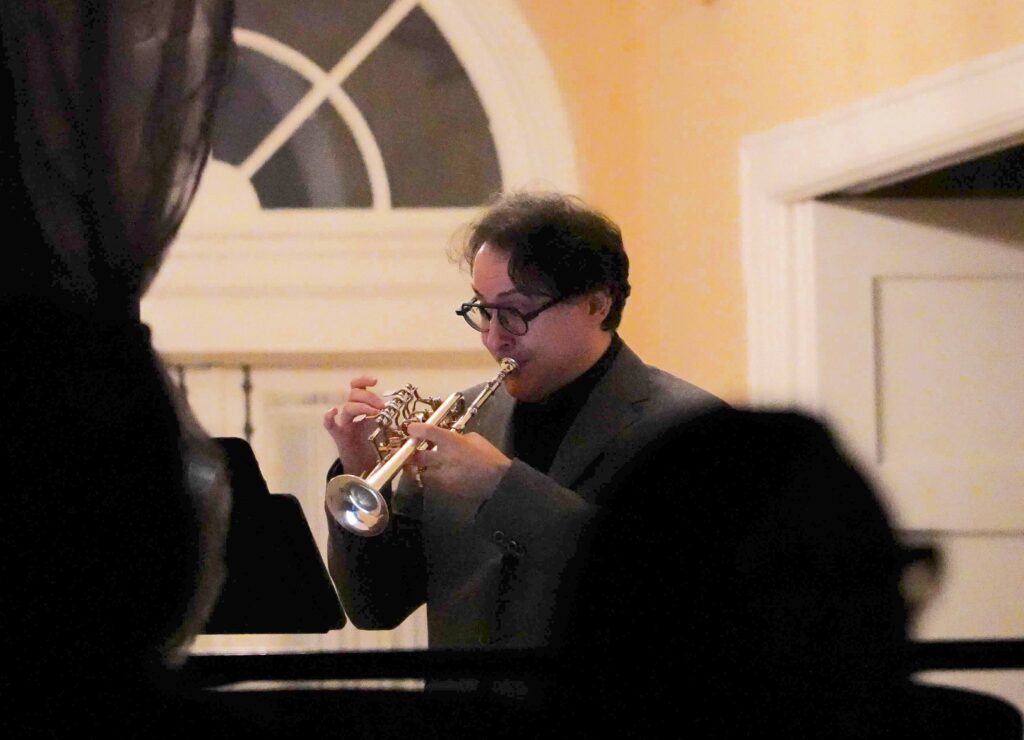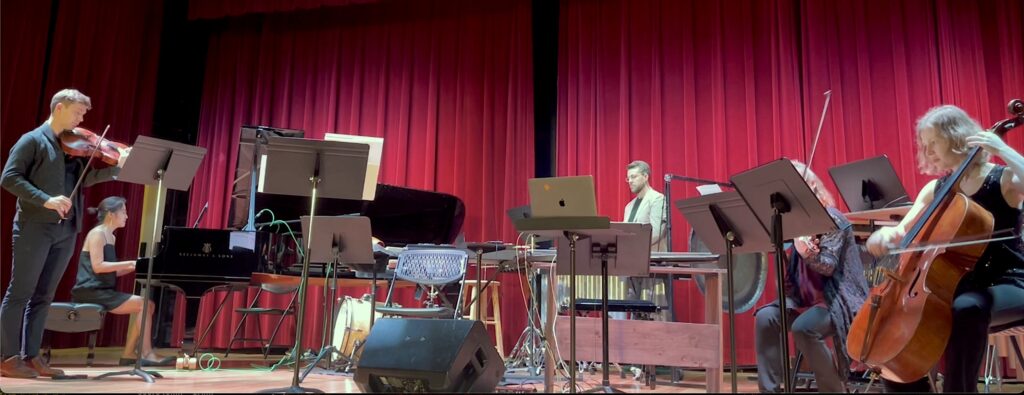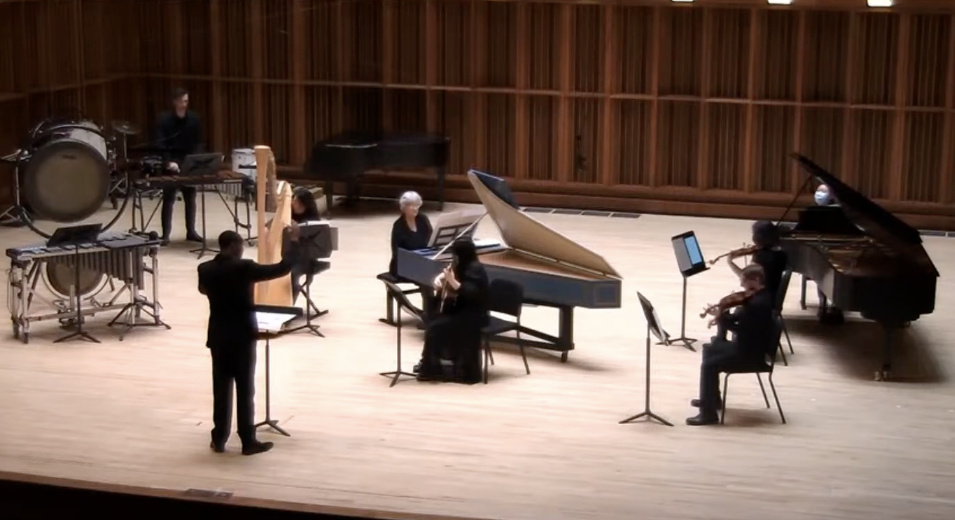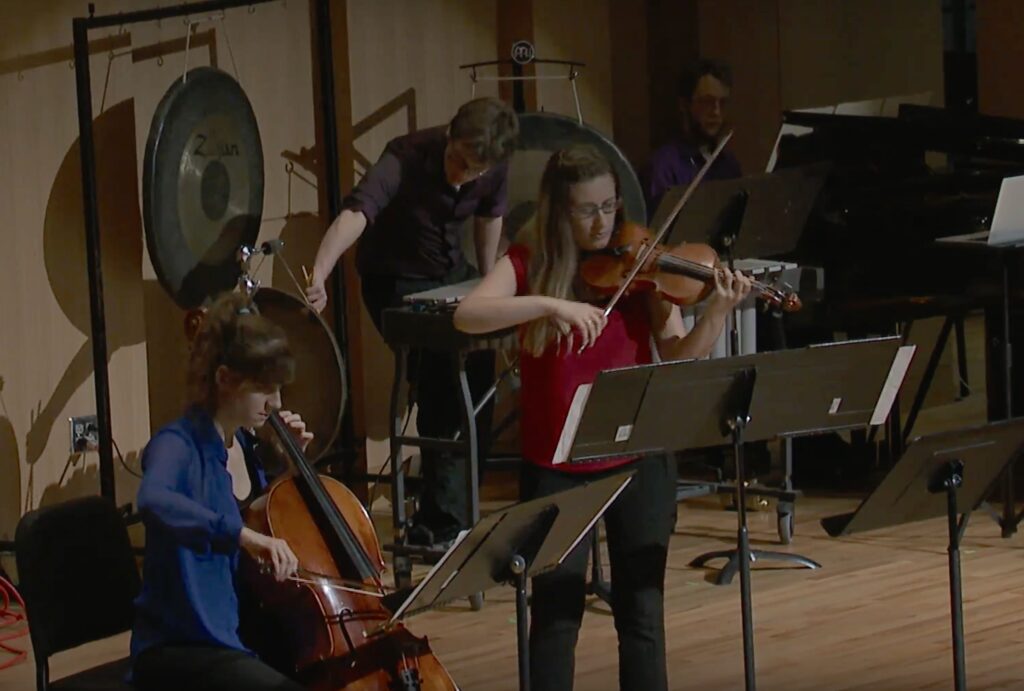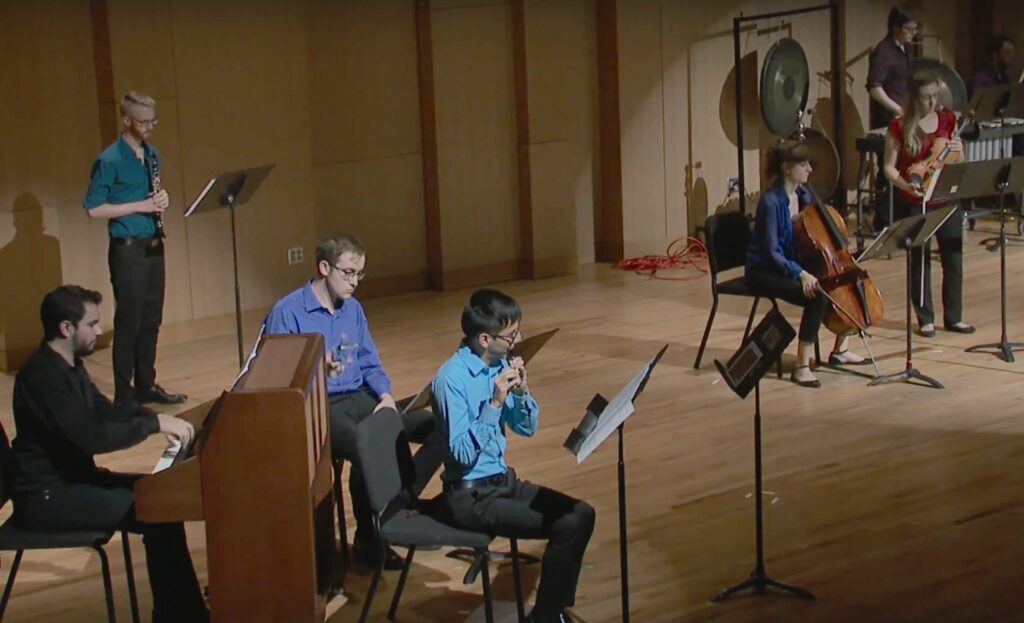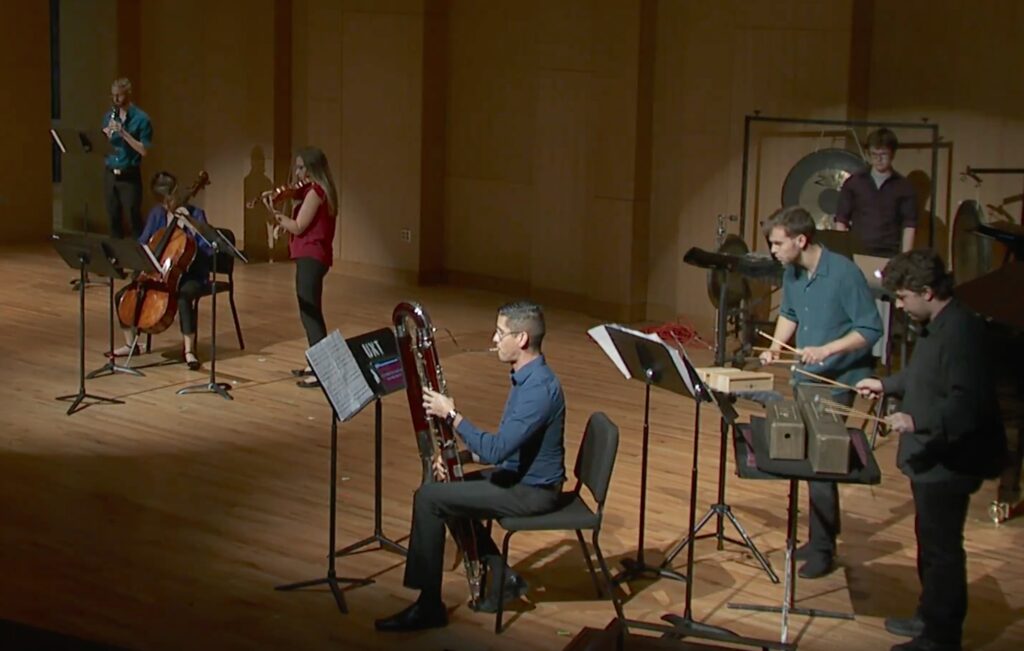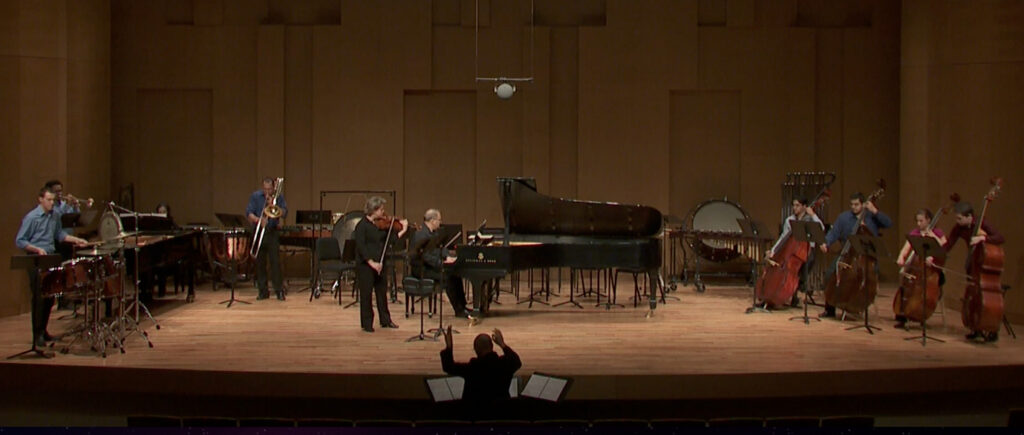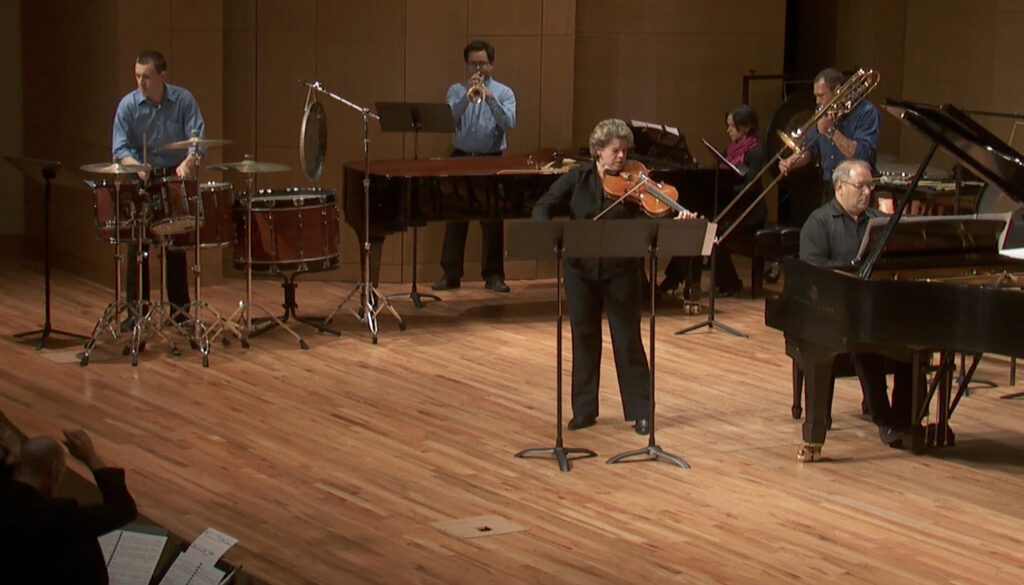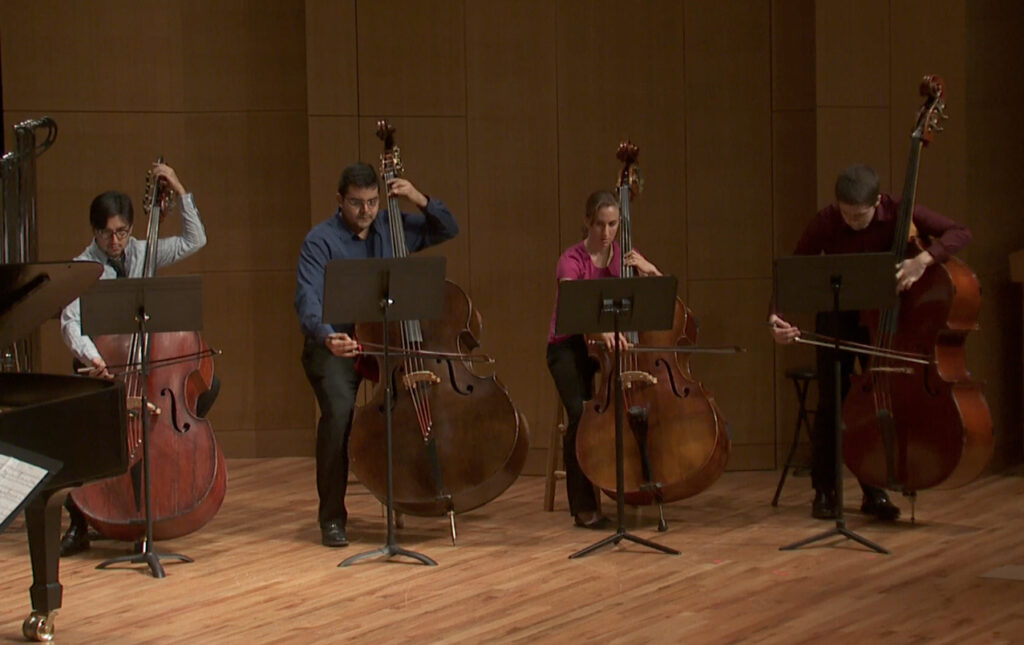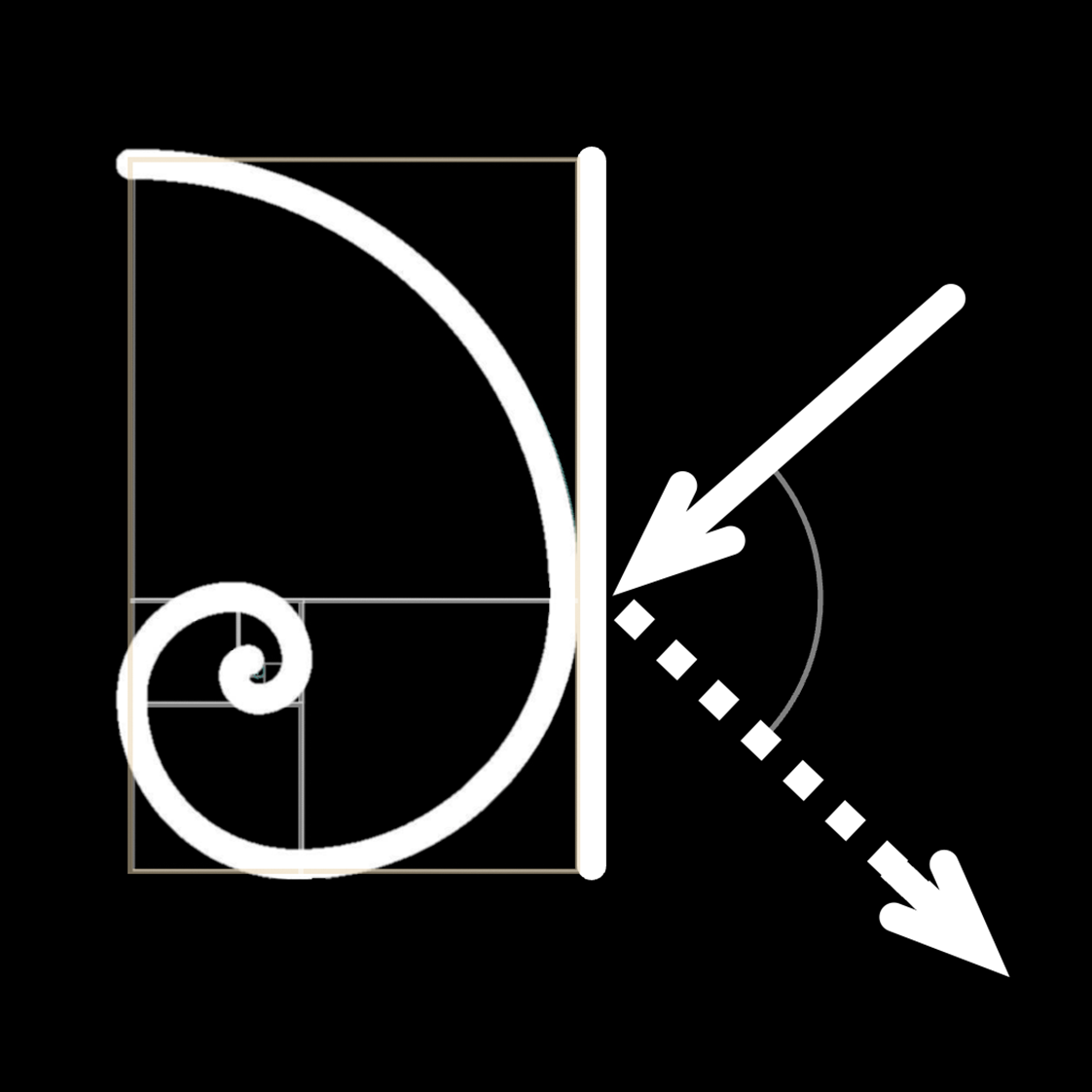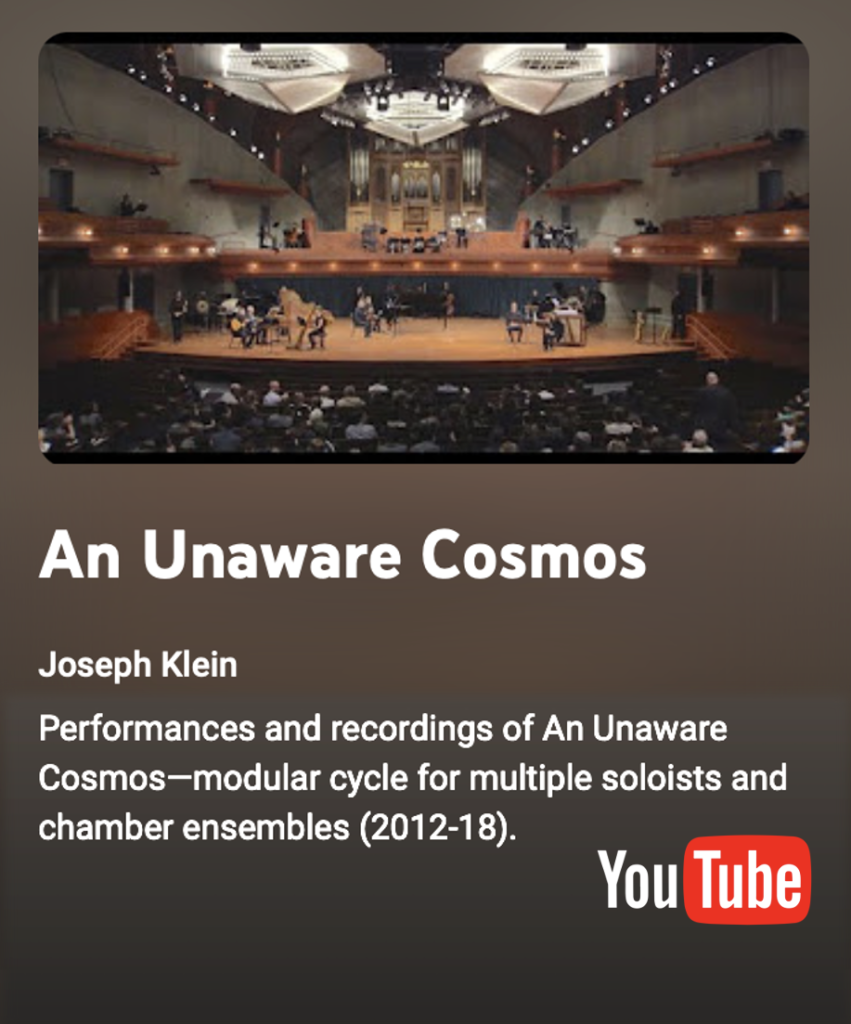Projects:
An Unaware Cosmos:
The history of art, music, and literature through the ages is rife with works rooted in their respective cultural mythologies; in contrast, the influence of science and mathematics on the arts has been primarily theoretical in nature (e.g., the overtone series and musical temperament, the golden ratio in ancient Greek architecture, tessellations in Moorish tile work, or the introduction of perspective in Renaissance painting). Only during the past half-century or so have such paradigms—as manifestations of objective reality—served as a basis for artistic expression.
While my own work has regularly drawn upon models and metaphors from mathematics and the sciences as an expression of the natural world, I have become increasingly compelled in recent years—in part as a response to the preponderance of works that extol the pervasive mythologies of our present culture—to create a work that pays homage to those freethinkers who have devoted their lives to the pursuit of truth, many of whom suffered persecution and punishment by the authorities of their respective eras. In that spirit, An Unaware Cosmos was conceived as a celebration of humankind’s quest for knowledge through skepticism and critical inquiry, as well as a rebuke of the tribalism, superstition, and sophistry that continue to characterize much of our society well into the 21st century. Concepts relating to cosmology, evolutionary biology, and genetics—as well as aspects of materialism, existentialism, humanism, and other nontheistic philosophies—have informed this modular work for multiple soloists and mixed chamber ensembles.
The polyvalent and mutable arrangement of the nineteen modules that comprise this cycle are intended to explore a variety of relationships—timbral, spatial, conceptual, structural—both within and between modules. In performance, music from these distinct modules is combined, fragmented, dislocated, suspended, disrupted, and penetrated, often in unpredictable ways. This approach to form suggests an Eternalist model of time, whereby all possible events theoretically exist, while our ability to experience them is restricted to the present moment; thus, any given realization of An Unaware Cosmos is simply one of a potentially limitless number of ways the work may unfold. Applying this concept to the listening experience challenges our teleological assumptions regarding musical form, which are themselves the result of centuries-old cultural biases.
An Unaware Cosmos was supported in part by a fellowship from the Institute for the Advancement of the Arts at the University of North Texas. The complete cycle was premiered on 26 October 2018 at the University of North Texas Murchison Performing Arts Center.
| Title | Players | Instrumentation | Temporality | Character | Epigram(s) |
|---|---|---|---|---|---|
| Que sçay-je? | 1 | solo Eb clarinet | Sectional | Assertive | Michel de Montaigne, Galileo Galilei |
| A Splendid Torch | 1 | solo piccolo trumpet | Intermittent | Assertive | George Bernard Shaw, Albert Camus |
| …e pur si muove | 1 | solo violin | Intermittent | Varied | Galileo Galilei |
| A Noble Ideal | 1 | solo xylophone | Sectional | Assertive | H.L. Mencken, Noam Chomsky |
| Unweaving a Rainbow | 2 | viola (or violin, or violoncello), piano | Continuous | Neutral | Isaac Newton, John Keats |
| The Illusion of Permanence | 2 | violin, violoncello | Continuous/Sectional | Varied | Giordano Bruno, Woody Allen |
| Celestial Teapot | 2 | percussion (one player: vibraphone, 3 crotales, 3 tam-tams), piano (or harp) | Recurring | Passive | Bertrand Russell, David Hume |
| Blind Watchmaker | 3 | contrabassoon (or Bb contrabass clarinet), 2 percussion (4 woodblocks; 4 log drums) | Continuous/Sectional | Assertive | Richard Dawkins, Lawrence Krauss |
| A Fleeting Symmetry | 3 | guitar, harp, harpsichord | Recurring | Neutral | Denis Diderot, Carl Sagan |
| On the Perimeter of Ignorance | 3 | piccolo, celesta, flexatone | Recurring | Assertive | Neil deGrasse Tyson, Richard Feynman |
| A Delicate Geometry | 3 | voice (countertenor or mezzo-soprano), electric guitar, accordion (or harmonium, or portative organ) | Recurring | Passive | Baruch Spinoza, Carl Sagan |
| La Contagion sacrée | 3-4 | trumpet, horn, trombone (or 3 horns); percussion (optional, one player: afuche, shaker, or sand blocks) | Sectional | Assertive | Baron d’Holbach, Robert Ingersoll |
| Pascal’s Fallacy | 4 | saxophone quartet (SATB, ATTB, AAAA) | Recurring | Assertive | Albert Einstein, George Orwell |
| Glorious Accidents | 4 | 4 mixed double reeds and/or saxophones | Recurring | Neutral | Stephen Jay Gould, Lawrence Krauss |
| Transient Dominion | 4 | Flugelhorn (or trumpet), bass trombone, percussion (one player: 3 cymbals, tam-tam, 4 tom-toms, bass drum), piano | Intermittent | Assertive | Stephen Jay Gould, Mark Twain |
| Shadows on the Horizon | 4 | string quartet | Recurring | Assertive | Thomas Paine, Thomas Jefferson |
| The Indelible Stamp of Our Lowly Origin | 4 | 4 contrabasses | Continuous/Sectional | Neutral | Charles Darwin, Stephen Hawking |
| La vanité des superstitions | 5 | wind quintet: alto flute, English horn, bass clarinet, horn, bassoon | Sectional | Varied | Jean Meslier, Baron d’Holbach |
| Die Tyrannei der Mehrheit | 6+ | low brass (4 parts, up to 4 players per part, drawn from bass trumpets, euphoniums, tubas); percussion (2 to 4 players): chimes, tam-tams required; gongs, bell plates, almglocken, ad libitum) | Intermittent | Assertive | Friedrich Nietzsche, Elizabeth Cady Stanton |
The title of this project was borrowed from the headline for an obituary of writer and provocateur Christopher Hitchens (1949-2011), which was published on the NPR website in December 2011.
A given realization of An Unaware Cosmos typically includes three to six modules—though performances to date have ranged from individual modules to the entire cycle, comprising nineteen modules and 59 musicians. Modules may be arranged in any number of ways according to the guidelines specified for each.
Because each module has a distinctive and often uniform character, a performance of An Unaware Cosmos is highly dependent on the relationships between the selected modules, perhaps more so than those within any given module. In order to enhance the contrapuntal possibilities within a given performance of the work, it is important to consider the various relationships of the modules with regard to temporality (continuous/discontinuous) and character (assertive/passive/neutral/varied).
More information about this work, including links to the score, recordings, and complete performance history is available here. An in-depth discussion of An Unaware Cosmos is the subject of a December 2024 interview with Michael Cooke as part his YouTube series Music from Humans.

